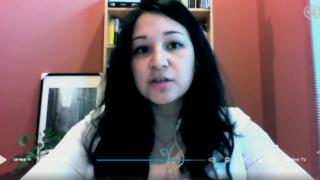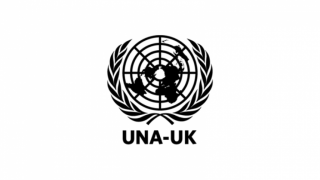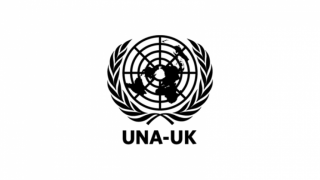
On 8 October, a joint statement on race and intersectionality was delivered to a meeting of the General Assembly’s First Committee - the committee where disarmament and international security issues are discussed.
UNA-UK was proud to co-sign this statement, which was delivered by Farah Bogani of the Campaign to Stop Killer Robots on behalf of 86 civil society organisations working on humanitarian disarmament around the globe.
The statement highlights the disproportionate effect that conflict and arms proliferation has on marginalized and vulnerable groups of different races, gender identities, sexual orientations, abilities, socioeconomic status, faiths, and other social identities. It cites specific manifestations of this inequality within the field of nuclear weapons, armed drones and algorithmic bias in autonomous weapons.
“Nuclear weapons testing has displaced Indigenous and Pacific Islander communities, rendering their lands unsafe, uninhabitable, and toxic. Targeted killings and strikes by armed drones perpetuate gendered and racial biases in a vacuum of legal justification. Algorithmic bias in autonomous weapons systems risks entrenching historical systems of oppression, exacerbating inequality, and upholding disproportionate structures of power.”
The powerful statement goes on to scrutinise the disarmament community’s own assumptions and unconscious biases, stating that we need to question “whose voices are valued in disarmament? Whose voices lead the conversations and develop the policies; and whose voices, experiences, and expertise are missing from these spaces and processes?”. Earlier this week it was pointed out that less than a quarter of statements at First Committee are delivered by a woman.
UNA-UK aligns itself fully with the statement, not least its assertion that the requirement for all organisations working in this field to adopt a deliberate and intentional anti-racist approach to their programme of work is fundamental to addressing disarmament and security issues.
UNA-UK is on a journey of self-examination and transformation to challenge assumptions and bias in our own decisions as an organisation. We examined many of these issues in our 2018 Magazine “The Colour Line is the Power Line is the Poverty Line” and have since established a system to the monitor the protected characteristics of contributors to our publications, events and wider work, which is equipping us with the data we need to shine a spotlight on underrepresented groups and perspectives.
In addition, we are working with our global Together First network to make international institutions more inclusive, including through the appointment of a UN civil society champion. The proposal, which is gaining significant traction, requests that the Secretary-General appoint a high-level envoy to overhaul the current system of civil society participation which is heavily skewed towards well-resourced, western NGOs and proactively seek out and include a broader, more diverse and representative cross-section of civil society voices.
We acknowledge that all states, international organisations, NGOs and grantmakers in this field can and need to do more to address the enduring inequalities that are exacerbated and perpetuated by the use of weapons. As expressed in the final sentence of the statement: “The future we want is not about the weapons but truly about the people.”
Read the statement delivered to the UN General Assembly’s First Committee
Watch a clip of the statement on twitter
Image: Farah Bogani of the Campaign to Stop Killer Robots delivers a statement on behalf of 86 civil society organisations to a virtual session of General Assembly's First Committee






